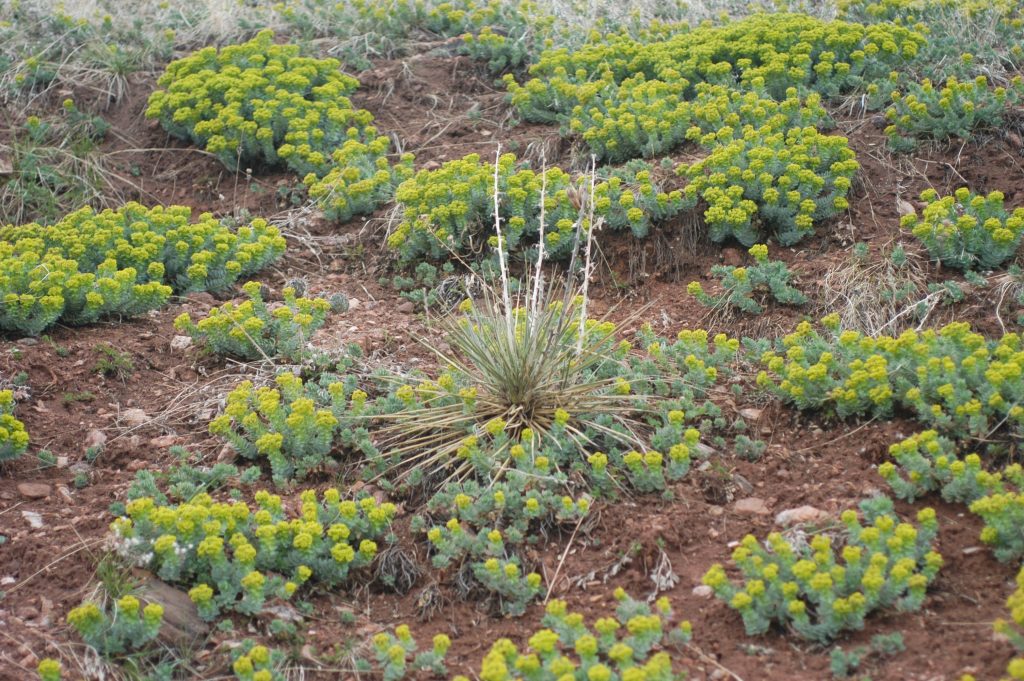Boulder County Parks and Open Space is no different than any other open space agency in that we have issues with noxious weeds. One of the questions I often get is how do we deal with these non-native plants that affect our open space properties?
We use a strategy called Integrated Pest Management (IPM). This is a process used to solve noxious weed problems while minimizing risks to people and the environment. IPM can be used to manage all kinds of weeds in any location, such as in urban, agricultural, and wildland or natural areas.
What Are Weeds?
I like the definition given by a philosopher that “a weed is a plant whose virtue has yet to be determined.” Very simply, weeds are non-native plants that can take over an ecosystem and crowd out desirable grasses, forbs and shrubs. Once we determine that we have a weed problem, we use the Integrated Pest Management strategy. The most effective long-term way to manage a noxious weed problem is by using a combination of methods that work better together than separately.
Four Approaches For Managing Weeds
- Biological Control: the use of natural enemies such as predators, pathogens and competitors to control weeds and their damage.
- Cultural Control: practices that reduce weed establishment, dispersal and survival. For example planting native grasses and forbs to reduce disturbance and increase competition which we hope will out-compete non-native plants.
- Mechanical Control: mowing, tillage, weed whacking and even using mulch to control weed populations. This is usually only a means of suppression for most species.
- Chemical Control: Herbicides are used in combination with other approaches for more effective, long term control. They are selected and applied in a way that minimizes their possible harm to people, native vegetation and the environment. With IPM you use the product with the lowest toxicity, at the lowest rate in order to attain the needed results.
We combine these IPM principles and practices to create our weed management guidelines. While each situation is different there are some major components common to all IPM programs: proper weed identification, monitoring and assessing weed infestation, determining when management is needed, preventing weed issues, using a combination of biological, cultural, mechanical and chemical management tools, and after action is taken, assessing the effect of weed management.
Following this approach to weed management doesn’t guarantee success, but it does mean you may have a better chance to control non-native plants and establish desirable vegetation.

